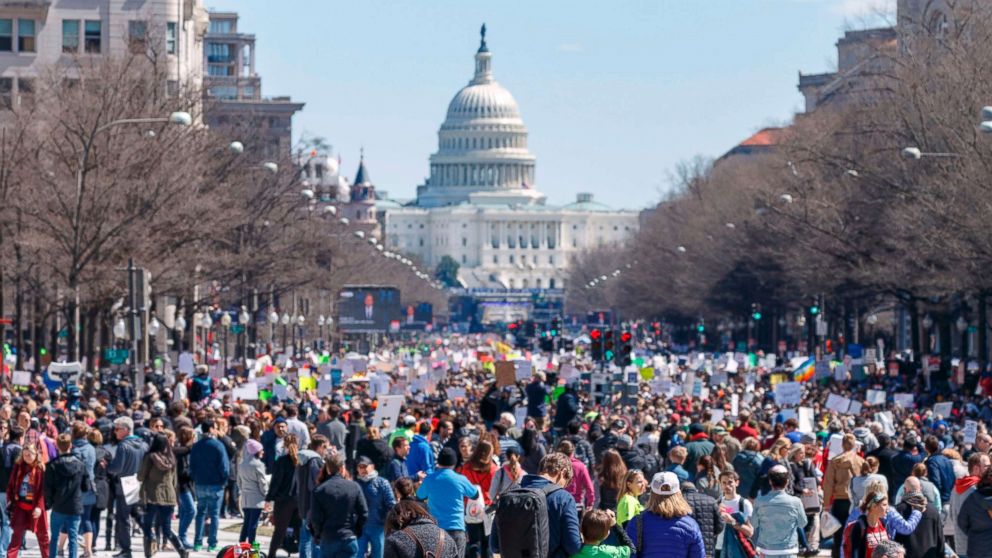What's next for the March for Our Lives movement
Hundreds of thousands of people showed up in force all across the country this weekend to demand action on gun violence in the wake of the February shooting at Marjory Stoneman Douglas High School in Florida.
Now, the burgeoning March for Our Lives movement is focusing on turning the student activists' talking points into reality.
March for Our Lives organizers are calling on supporters to register to vote, educate themselves on issues and cast a ballot in upcoming elections.
"That's what it will take to create real change," March for Our Lives wrote in a tweet Monday morning.
Stoneman Douglas student David Hogg, one of the movement's key organizers, urged Americans to vote for politicians who support gun control measures.
"We are going to make this the voting issue. We are going to take this to every election, to every state, in every city. We are going to make sure the best people get in our elections to run, not as politicians, but as Americans. Because this — this is not cutting it," Hogg said on Saturday at the March for Our Lives rally.
"To those politicians supported by the NRA, that allow the continued slaughter of our children and our future, I say: Get your résumés ready," he said.
Aaron Ghitelman, communications director at HeadCount, a non-profit voter registration group, said the number of people who registered to vote at these rallies was "unprecedented."
Ghitelman said that HeadCount's previous record for most voters registered at a single event was at Bonnaroo music festival in 2016, when 1,300 people registered to vote over four days. In Washington, D.C., on Saturday, with the help of about 800 volunteers, HeadCount registered 1,552 voters in six hours, he said.
Ghitelman added that HeadCount volunteers registered 4,800 voters across the country at the various March for Our Lives affiliated events.
In addition to increasing voter registration, March for Our Lives would like to see a ban on high capacity magazines and assault weapons as well as the implementation of universal background checks, according to its website.
The group also wants the Centers for Disease Control and Prevention to fund gun violence research and have the Bureau of Alcohol, Tobacco, Firearms and Explosives modernize and digitize records of gun sales. Both actions have been stopped by legislation supported by the National Rifle Association in the past.
The day after Saturday's marches, Hogg turned his attention on Twitter to another date: April 7. The teen activist is now calling for March for Our Lives supporters to help a group called Town Hall Project, which is organizing town hall meetings with political representatives and their constituents in two weeks.
The group is now calling on its followers to organize a "Town Hall For Our Lives" in their respective districts.
While the efforts to plan future events are underway, the Parkland students are taking a momentary breather.
According to student Cameron Kasky, he and his fellow students are taking a day-long break after the rallies, writing on Twitter, "Tuesday we’re right back at it. It’s a marathon, not a sprint. And the safety of the American people will come in first."




